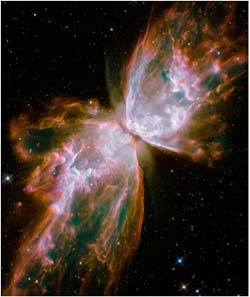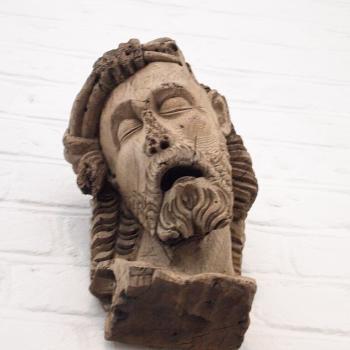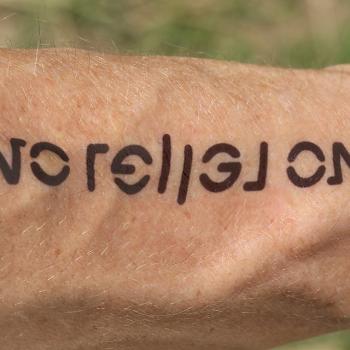By George Sim Johnston

Science is mankind's great success story since the Renaissance. Only the most obdurate Luddite can regret the computer chip, the Hubble telescope, and the heart bypass. But these material triumphs have come at a philosophical cost. The scientific method has been so successful in its own sphere that many intelligent people think it the only valid expression of knowledge. From this perspective, Christian belief appears as a relic of the dark benighted ages, when men still hearkened to the powers and principalities of the air.
G. K. Chesterton, as usual, diagnosed the psychological flaw of scientific triumphalism: People who don't believe in God don't believe in nothing: they will believe in anything. The dogmas of faith have been replaced by the dogmas of materialism. Modern belief systems like Marxism and Darwinism boil down to a single unproved, and unprovable, proposition: that all phenomena, including Homo sapiens, can be explained entirely by natural science. This core dogma of post-Christianity allows the famous rhetorical question of physicist Stephen Hawking: What need, then, for a Creator?
This sort of materialism is extremely old-fashioned. It ignores virtually everything we've learned about the universe since the 19th century. Why do so many scientists embrace it? The answer is simple: Scratch a physicist like Hawking who says that science has dispensed with a Creator, and you will find a person who won't do science without first putting on philosophical blinders. You'll also find a refusal to heed a simple ground rule: Science, being a description of nature, can have nothing to say about what, if anything, is outside of nature.
Far from being intimidated by science, Christians ought to rejoice in the fact that modern science points strongly in the direction of a Creator. They also ought to be aware of a simple historical fact that is seldom broached in textbooks: without Christianity there would be no science in the first place. As Stanley Jaki, the physicist and Benedictine priest, has brilliantly shown in books like The Savior of Science, science was "still-born" in every culture -- Greek, Hindu, Chinese -- except the Christian West. Science is a precarious enterprise that cannot get off the ground unless first given permission by philosophers and theologians. And this permission has been granted but once in history: by the great Catholic thinkers of the Middle Ages.
What is it about Christianity, and medieval scholasticism in particular, that paved the way for Newton and Einstein? First, the belief that the universe is rational. It was created, after all, through the Word, the divine Logos, which is rationality itself. When we read pagan accounts of the origin of the world, we find nothing but chaos. In the ancient Babylonian account, the universe, instead of being the deliberate act of an all-wise Creator, is the accidental byproduct of a drunken orgy. The Greek gods are somewhat more decorous, but even they decide things mainly by argument and deception, not by a single, definitive fiat.
Second, the Catholic philosophers of the Middle Ages formulated a realist metaphysics, without which science is impossible. Catholics believe in the reality of matter; the physical world is not simply a veil of illusions, as the Eastern religions would have it, but an order of being that has its own dignity and built-in laws. Buddhist science for this reason is a nonstarter.
Third, Christians believe that history is linear and not, as Eastern religions hold, cyclical. Only a universe with a beginning, middle, and end is hospitable to irreversible physical processes like the second law of thermodynamics. The work of Newton and Einstein would have been impossible without this simple assumption.
Since Western science owes its existence to the realism of Catholic metaphysics, how did the situation arise where educated people assume that science and Catholic dogma are antagonistic? The answer is simple: Galileo. Galileo is one of those hot button words, like Inquisition, which are used to end any discussion about the compatibility of Catholicism and human progress. There are even educated Catholics who wish that the whole sorry episode surrounding that great scientist could be swept under a rug and forgotten.
This was not, however, the attitude of Pope John Paul II, who had a keen interest in modern science. Shortly after becoming pope, he established a commission to look into the Galileo affair. The commission's report affirmed that Church authorities in the 17th century had indeed gravely violated Galileo's rights as a scientist; but it also interestingly supported the anti-Catholic Victorian biologist Thomas Henry Huxley, who examined the Galileo case and reluctantly concluded that "the Church had the best of it."




